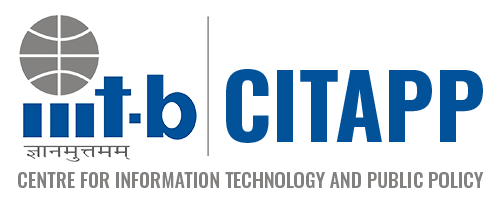Dates: 24-26 May, 2023
Prof. Amit Prakash, Prof. Janaki Srinivasan and Reasearch Associate Bilahari M will take part in the International Labour conclave to be held in Thiruvananthapuram, Kerala. The three-day international labour conclave is organised by the Labour department in association with the State Planning Board in Thiruvananthapuram. The conclave will be inaugurated by the Chief Minister of Kerala Pinarayi Vijayan. The conclave’s objective is to set a milestone for new policies and changes in the employment sector of Kerala. Over 150 important personalities related to the labor sector including representatives of labor and employer organizations from within and outside the country, prominent people in the field of administration and knowledge, lawyers, International Labour Organisation (ILO) representatives, high-ranking officials and experts from various states and states will participate in the conclave as delegates. Experts from national and international universities will also participate in various sessions.
Source: Information Public Relations Department, Govt. Of Kerala
Prof. Amit Prakash’s talk on the panel ‘Skilling and Future Forms of Work’ focused on the emerging opportunities in the Tech4Good Sector and the importance of interdisciplinary education
Talk abstract:
The design and use of digital technologies to bring about positive development and governance outcomes, in line with the 2030 Agenda for Sustainable Development, has assumed greater significance in a post-pandemic world. This growing Tech4Good sector provides promising opportunities to address the inequalities that persist in our societies, despite the fast-faced technological advances. Creating technologies that can be of value to large sections of underserved and marginalized social groups, however, requires product teams to develop competencies beyond what is acquired through an engineering education currently provided in many of our higher education institutions. It calls for an appreciation of what constitutes ‘good’ for diverse sets of people across differentiated contexts, better gained through a sound understanding of social structures and relationships, economic priorities, power and politics, beliefs, values and ethics – all within the domain of what constitute the social sciences. An interdisciplinary expertise, where traditional engineering knowledge is enhanced by a widening of perspective through theoretical and methodological frameworks drawn from the humanities and social sciences can serve the Tech4Good initiatives well. Education and skilling initiatives in this upcoming field stand to benefit by incorporating a suitable blend of such complementary capabilities while designing learning outcomes, curricula and pedagogical approaches. The thrill of producing technology, combined with the satisfaction of social impact, that the Tech4Good sector promises can not only make future careers more exciting, it also offers a renewed hope of more inclusive and accessible digital and social spaces. The talk will touch upon the aforesaid aspects while discussing future forms of work and skilling needs relevant to the Indian context.
Prof. Janaki Srinivasan and Bilahari’s talk on the panel ‘Gig and Platform Workers’ Welfare’ shed light on the the future (and present) of gig workers in India and drew from their work on the Fairwork project.
Talk Abstract:
Far too often, discussions on the Future of Work neglect to discuss the Future of Workers. Focussing exclusively on one category of workers (location-based gig workers), Fairwork India (a member of the global Fairwork network and based at the Centre for IT and Public Policy, IIIT-Bangalore), has been studying and rating the conditions of gig workers in India annually since 2019. We rate platforms along the five principles of Fair Pay, Fair Conditions, Fair Contracts, Fair Management and Fair Representation, and our annual ratings are the only multi-year, multi-platform, multicity, and multi-domain study of gig work in India. Our ratings show that even as gig platforms offer work opportunities to many, the conditions of their work leave much to be desired especially against the backdrop of a regulatory vacuum. In this talk, we will highlight findings from our 5 years of research and examine their significance against the perceived promise and current landscape of gig work in India.
The Fairwork ratings draw on interviews with gig workers, conversations with platform management and desk research. In India, we have rated 10-12 locationbased gig work platforms every year since 2019. In the course of our work, we have conducted close to 1000 interviews with gig workers in Bangalore, Delhi and Kochi. Platforms we rate include both homegrown and multinational entities, and span ridehailing, courier, e-commerce, food delivery and home services. While there is variation in the working conditions across domains and platforms, our research over the years indicates that few platforms have put in place mechanisms to ensure that workers earn at least the hourly local minimum wage after work-related costs. While app-based gig workers continue to face the risks associated with their specific domain of activity (road accidents, harassment by customers among others), they also face additional challenges due to their reliance on an app and their “non-traditional” relationship with the platforms they work for. They have no social security net to speak of, while their contracts with platforms can often be asymmetric in their distribution of liabilities. While most platforms have a grievance redressal system in place, our interviews indicate that several of these are ineffective on the ground. Finally, despite the various forms of collective action that gig workers have undertaken to voice their concerns in the past few years, platforms have been uncompromisingly unwilling to recognise or negotiate with any collective body representing workers. We will conclude with policy recommendations based on our findings.
For more on this, click here.

